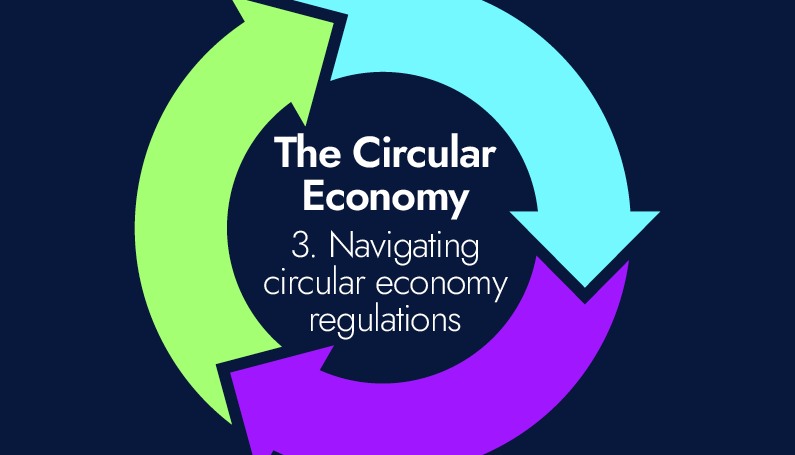Welcome to the 3rd post in our Circular Economy series!
In this series, we’ve been exploring key aspects of the circular economy and how it is reshaping industries. Today we are focusing on an important topic: Navigating Circular Economy Regulations.
The legislative landscape is evolving rapidly as the world grapples with the pressing challenges of climate change and resource depletion. This legislation is expected to reduce environmental impact, conserve resources and promote sustainable growth.
At Carbonbit, we understand the critical importance of environmental legislation compliance. As businesses pivot towards sustainability, grasping the nuances of regulatory compliance in the circular economy becomes essential. With increasing fines and expanding legislation, non-compliance can pose significant challenges for organisations.
Here’s a quick look at some of the key regulations in the UK, EU, and USA that are shaping this shift:
UK: The UK has implemented stringent measures to promote recycling and reduce waste. The Extended Producer Responsibility (EPR) scheme is a notable example, holding producers of large amounts of waste accountable for the entire lifecycle of their products. Additionally, The Waste (Circular Economy) (Amendment) Regulations 2020 also emphasises better waste management and recycling practices pushing businesses to adopt more sustainable practices.
EU: The EU’s Circular Economy Action Plan, part of the European Green Deal, aims to make sustainable products the standard across the EU. It focuses on circular design, extending product life and promoting sustainable sourcing—all essential to reducing waste and keeping resources in use for as long as possible. Key regulations, such as the Corporate Sustainability Reporting Directive (CSRD), reinforce these goals by requiring businesses to report on their environmental and social impact and efforts toward circularity, further driving sustainable practices and waste reduction.
USA: The Resource Conservation and Recovery Act (RCRA), enforced by the EPA, provides the framework for waste management and resource recovery. It encourages businesses to reduce waste, recycle more and recover valuable materials, contributing to a more circular economy. Compliance with RCRA not only helps reduce environmental harm but also supports efficient resource use, which can improve long-term profitability
Understanding these regulations and their impact is essential for successfully navigating this evolving landscape and ensuring your business thrives sustainably. That is notwithstanding the importance of assuring any publicised data.
Stay tuned for our next post, where we will discuss business model innovation for a circular future!
